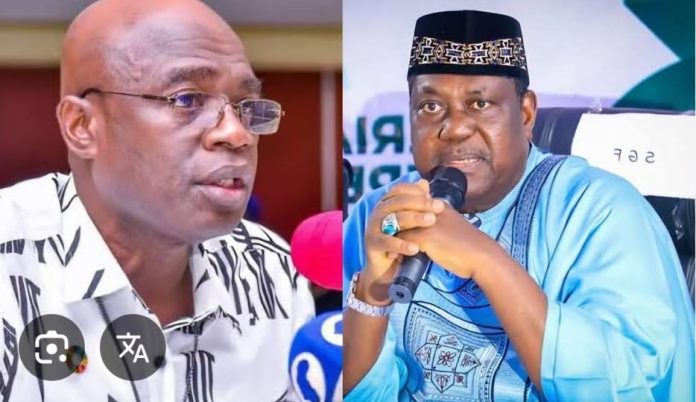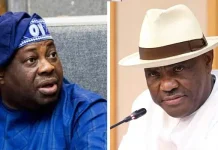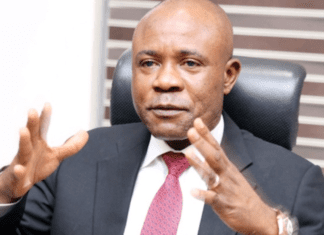By Nelson Ogbu
Benue State is facing a dual crisis: a surge in insecurity and a festering political feud between two of its most influential sons—Secretary to the Government of the Federation (SGF), Senator George Akume, and Governor Hyacinth Alia. Their power struggle within the All Progressives Congress (APC) has fractured the party and now threatens to undermine efforts to address the state’s growing security concerns.
Origins of the Feud
The tension between Akume, a long-standing political leader in Benue, and Governor Alia, once his protégé, began over disagreements in party leadership and governance style. The tipping point came in 2023 during the tussle over the Speakership of the Benue State House of Assembly. While Akume backed Mrs. Becky Orpin, Governor Alia outmaneuvered him to install his ally, Mr. Aondona Dajoh, as Speaker—signaling a significant power shift.
Despite Governor Alia’s public denials, dismissing the rift as mere “speculation,” the divide is visible. The APC in Benue now operates in two clear factions: one loyal to Alia, led by Benjamin Omale, and the other to Akume, led by Austin Agada. Attempts by the APC national leadership to mend fences, including forming a caretaker committee with members from both camps, failed after Agada’s group secured a court order to block the dissolution of its executive.
Security Implications of Political Disunity
The timing of this political disarray could not be worse. Benue is once again witnessing a rise in violence, particularly deadly clashes between farmers and herders. In recent weeks, coordinated attacks in Gwer West and Apa Local Government Areas claimed more than 20 lives.
These tragedies highlight the urgent need for cohesive and united governance. Unfortunately, political rivalry has disrupted crucial lines of communication and cooperation. Influential politicians loyal to Akume—many of whom reside in conflict-prone areas and possess valuable grassroots intelligence—are reportedly sidelined by the Alia administration. The reverse is also true, creating an information gap and weakening collective response strategies to the violence.
Governance Paralysis and Fallout
The feud has paralyzed parts of the Benue State administration. Lawmakers aligned with Akume have faced suspensions, denial of official vehicles, and delays in accessing constituency allowances. Meanwhile, federal legislators allied with the SGF remain at odds with Governor Alia, further exacerbating the dysfunction.
This internal strife distracts from the urgent need to secure lives and property. Criminal elements are emboldened by the lack of unified leadership, exploiting administrative gaps to intensify attacks on communities.
Calls for Reconciliation
Recognizing the damage the feud is causing, several stakeholders have appealed for unity. The Tiv Traditional Council, led by the Tor Tiv, Professor James Ayatse, has intervened, urging both leaders to place Benue’s interests above personal or political ambitions. The North-Central APC Forum has similarly warned that continued division could spell doom for the party’s 2027 electoral prospects in the region.
Despite these peace overtures, reconciliation remains elusive. Reports suggest that Governor Alia has resisted efforts by President Bola Tinubu and other APC elders to broker peace. In a recent appearance on Channels Television’s Politics Today, Alia hinted at deeper political undercurrents, revealing that preliminary findings from a Judicial Commission of Inquiry on insecurity point to the complicity of “big Abuja-based politicians”—a veiled reference many believe targets Akume’s allies.
He further vowed to take decisive action against those implicated, stating, “I will deal with them without mercy when the full report is out.”
The ongoing feud between Senator George Akume and Governor Hyacinth Alia is more than a political power struggle—it is a destabilizing force undermining governance and worsening insecurity in Benue State. At a time when unity is vital to confront violence and restore peace, disunity within the ruling party has left the state vulnerable.
Benue’s path to peace, development, and stability hinges on reconciliation and collaboration among its political leaders. Anything less risks plunging the state deeper into crisis, with citizens paying the ultimate price.
Join Television Nigerian Whatsapp Now
Join Television Nigerian Facebook Now
Join Television Nigerian Twitter Now
Join Television Nigerian YouTUbe Now

























